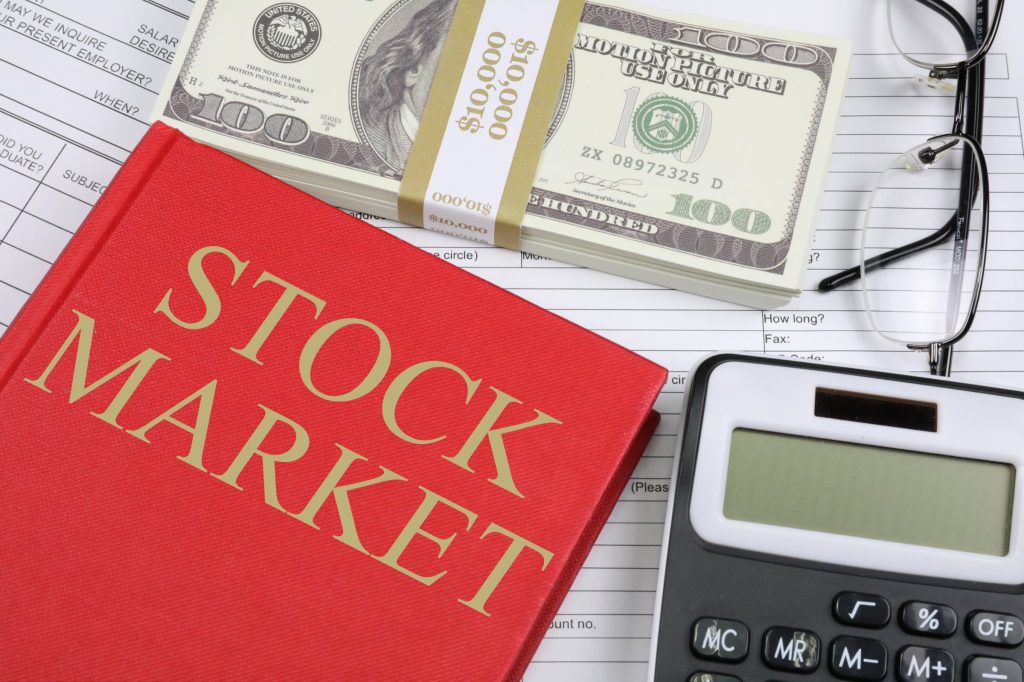Both the crypto and stock markets are platforms for investors to buy and sell assets, but they differ fundamentally in what they represent, their level of regulation, and their risk profiles. While the stock market is a mature, regulated venue for trading ownership shares in companies, the crypto market is a relatively new, decentralized, and highly speculative space for trading digital assets

Key Differences
The primary distinctions between the two markets can be understood by examining five key areas: assets, volatility, liquidity, trading hours, and regulation.
Assets: When you buy a stock, you’re purchasing a fractional ownership stake in a company. This ownership may come with voting rights and a claim to a company’s earnings in the form of dividends. A stock’s value is tied to the company’s performance, profitability, and assets. A cryptocurrency, however, is a digital or virtual currency secured by cryptography. It doesn’t represent ownership in a company and its value is primarily driven by market speculation, supply, and demand.
Volatility: The crypto market is notoriously more volatile than the stock market. While stocks can experience significant price swings, they are generally less dramatic and more predictable than those in the crypto space. The crypto market is still in its early “price discovery” phase, meaning prices can fluctuate wildly based on market sentiment, news, and even social media trends. For example, a single tweet from a prominent figure can cause a major cryptocurrency to surge or plummet.
Liquidity: The stock market, especially for large, well-established companies, is highly liquid. This means it’s easy to buy or sell shares without significantly affecting the asset’s price. The crypto market’s liquidity varies greatly. While major cryptocurrencies like Bitcoin and Ethereum are relatively liquid, many smaller altcoins can be illiquid, making it difficult to execute large trades without causing a significant price impact.
Trading Hours: Stock exchanges operate on a fixed schedule, typically during weekday business hours. In contrast, the crypto market is a global, decentralized network that operates 24/7, 365 days a year. This accessibility offers convenience but also poses a risk of sudden price changes when an investor is not actively monitoring their portfolio.
Regulation: The stock market is heavily regulated by government bodies like the Securities and Exchange Commission (SEC) in the U.S. These regulations are designed to protect investors, ensure fair markets, and mandate corporate transparency through public disclosures. The crypto market, by its decentralized nature, has far fewer regulations, though this is beginning to change as governments worldwide grapple with how to oversee the new asset class. The lack of regulation exposes investors to greater risks from scams, hacks, and market manipulation.
Investor Profile and Risk Tolerance
The choice between these two markets often comes down to an investor’s goals and risk tolerance. The stock market is a mature, time-tested investment vehicle with a long history of solid returns, making it suitable for long-term growth and more conservative investors. The crypto market, on the other hand, is ideal for speculative traders and those with a high-risk tolerance looking for the potential for outsized gains, but who are also prepared for the possibility of significant losses.
Advantages of the Stock Market
Investing in the stock market is a traditional and time-tested way to build wealth, offering a variety of benefits that make it a cornerstone of many investment portfolios.
Regulation and Transparency: The stock market operates under the watchful eye of regulatory bodies like the SEC, which enforces strict rules on public companies. This oversight helps ensure transparency, prevents fraudulent activities, and provides a certain level of investor protection.
Liquidity and Accessibility: Major stocks are highly liquid assets, meaning they can be bought or sold quickly and efficiently. Additionally, online brokerage platforms have made investing in stocks more accessible than ever, allowing people to start with small amounts of capital.
Dividends and Voting Rights: As a shareholder, you can receive a portion of a company’s profits in the form of dividends. You also get to exercise voting rights on key company decisions, which gives you a direct stake in its direction.
Intrinsic Value: A stock’s value is tied to the underlying company’s performance, assets, and future profitability. This makes it easier for investors to perform fundamental analysis and make informed decisions based on a company’s financial health.
Disadvantages of the Stock Market
Despite its benefits, the stock market isn’t without its risks and drawbacks.
Volatility: While less volatile than crypto, stocks can still experience significant price swings, especially during economic downturns or periods of market uncertainty. A stock can lose value just as quickly as it gained it.
Lower Potential for Extreme Gains: While the stock market has a history of generating solid long-term returns, it generally doesn’t offer the same potential for astronomical, short-term gains that can be found in the crypto market. The growth is often more measured and tied to a company’s business cycle.
Limited Trading Hours: Unlike crypto, stock exchanges have fixed trading hours, which can be a disadvantage for investors who want to react to news or events that happen outside of regular business hours.
Advantages of the Crypto Market
The crypto market, while newer and more speculative, offers unique advantages that appeal to a different kind of investor.
Potential for High Returns: The most significant draw of the crypto market is the potential for massive returns. Cryptocurrencies, particularly newer ones, can experience exponential growth in a short period due to their high volatility and speculative nature.
24/7 Trading: Crypto exchanges operate around the clock, allowing investors to trade at any time of day or night, regardless of their location. This flexibility can be a major advantage for global traders.
Decentralization: Cryptocurrencies like Bitcoin are decentralized, meaning they are not controlled by any single authority, such as a government or central bank. This can be seen as a hedge against inflation and government manipulation of traditional currencies.
Portfolio Diversification: Adding a small allocation of crypto to a portfolio can help diversify assets, as its price movements are not always correlated with the stock market.
Disadvantages of the Crypto Market
The decentralized and unregulated nature of the crypto market comes with substantial risks that investors must be aware of.
Extreme Volatility: Crypto is notoriously volatile. Prices can swing by 20% or more in a single day, which presents both opportunities for profit and the risk of huge losses. This makes it unsuitable for risk-averse investors.
Lack of Regulation: The minimal regulation in the crypto space makes it a hotbed for scams, fraud, and security risks. Hacking incidents and rug pulls are common, and there are very few legal protections for investors who lose their funds.
No Intrinsic Value: Most cryptocurrencies are not backed by any tangible assets or cash flow. Their value is driven almost entirely by market sentiment and speculation, which can lead to dramatic and unpredictable price crashes.
Security and Storage Risks: Unlike stocks held by a regulated brokerage, cryptocurrencies are often stored in digital wallets that are susceptible to hacking or loss. If you lose your private keys, you lose access to your funds forever.


